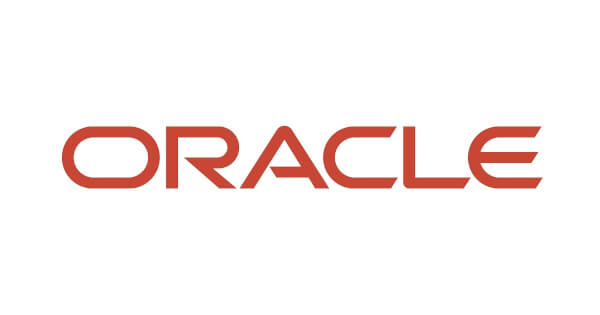In an increasingly competitive global financial landscape, Japanese companies are carving out a distinct advantage by strategically integrating Bitcoin into their corporate treasuries. As of November 2025, firms in Japan are not merely adopting the leading cryptocurrency, but are demonstrating superior performance compared to their US counterparts, a phenomenon largely attributed to nuanced, and often more favorable, domestic tax policies surrounding digital asset holdings. This trend highlights a potential shift in global corporate finance, where regulatory environments can significantly influence an asset’s utility and profitability for institutional investors.
The Rising Tide of Corporate Bitcoin Holdings in Japan
Japan has long been a frontrunner in cryptocurrency adoption and innovation, with a pragmatic approach to digital assets. Over the past year, a growing number of publicly traded Japanese companies, from technology startups to more established enterprises, have announced significant Bitcoin allocations for their balance sheets. This strategic move is often driven by a desire to hedge against persistent inflation, combat the weakening Yen, and diversify traditional treasury assets in a volatile global economy. Unlike earlier, more speculative periods, current corporate adoption is rooted in a calculated long-term investment strategy, viewing Bitcoin as a digital store of value akin to gold, but with superior portability and divisibility.
- Inflation Hedge: Bitcoin’s perceived scarcity acts as a buffer against inflationary pressures impacting traditional fiat currencies.
- Yen Weakness: A depreciating national currency encourages firms to seek stronger, globally recognized assets.
- Balance Sheet Diversification: Reducing reliance on cash and traditional financial instruments.
- First-Mover Advantage: Positioning companies at the forefront of the digital asset economy.
Strategic Tax Advantages: A Key Differentiator
The primary reason for Japanese firms outperforming their US peers in Bitcoin treasury management lies in their unique tax environment. While the United States often subjects corporate Bitcoin holdings to mark-to-market accounting, which can trigger tax liabilities on unrealized gains and add significant volatility to financial reporting, Japan has seen reforms and interpretations that offer a more palatable framework. Specifically, recent amendments to Japan’s corporate tax code and clearer guidance from financial authorities have made it more advantageous for companies to hold certain digital assets long-term.
This includes more favorable capital gains treatment for long-term corporate holdings of self-issued tokens and potentially more flexible interpretations for third-party acquired cryptocurrencies, reducing the immediate tax burden on paper profits. This predictability and reduced fiscal drag allow Japanese companies to maintain their Bitcoin positions with greater stability, avoiding forced liquidations or complex hedging strategies simply to manage tax implications, thereby maximizing their potential returns over time.
Outpacing US Peers: Performance Metrics and Drivers
The evidence of this outperformance is becoming increasingly clear. Japanese firms that publicly disclose their Bitcoin holdings have reported stronger balance sheet growth attributable to their digital asset portfolios compared to their US counterparts. This isn’t solely a function of Bitcoin’s market performance, but also the ability of these companies to retain and compound their gains without substantial tax erosion.
- Reduced Taxable Events: Fewer instances of unrealized gains being taxed.
- Long-Term Holding Power: Companies are incentivized to hold rather than trade frequently due to tax clarity.
- Market Confidence: Clearer regulatory signals bolster investor and corporate confidence in long-term strategies.
- Strategic Accumulation: The ability to accumulate during market dips without immediate punitive tax consequences.
Beyond tax, the cultural inclination towards long-term planning and a more harmonized regulatory approach from Japan’s Financial Services Agency (FSA) have contributed to a stable environment for corporate crypto adoption, fostering trust and encouraging deeper integration.
Implications for Global Corporate Treasury Strategy
Japan’s emergent leadership in corporate Bitcoin treasury management poses significant questions for other major economies. As global corporations increasingly explore digital assets, the ‘Japan model’ could become a blueprint. Other nations might be compelled to re-evaluate their own corporate tax structures for cryptocurrencies to remain competitive and attract digital asset innovation and investment. This could lead to a global ‘tax race’ to offer the most attractive environment for digital asset-rich corporations.
Conclusion
The strategic advantage gained by Japanese firms through their Bitcoin treasury holdings, significantly bolstered by favorable tax policies, marks a pivotal moment in corporate finance. It demonstrates that regulatory foresight and adaptable taxation can create a powerful competitive edge, encouraging robust digital asset integration. As the world watches, Japan is not just participating in the crypto revolution but is actively shaping its institutional future, potentially influencing how companies worldwide approach their treasury management in the digital age.
The post Japan’s Bitcoin Treasury Firms Gain Edge Over US Peers Thanks to Favorable Tax Policies appeared first on FXcrypto News.












 24h Most Popular
24h Most Popular







 Utilities
Utilities